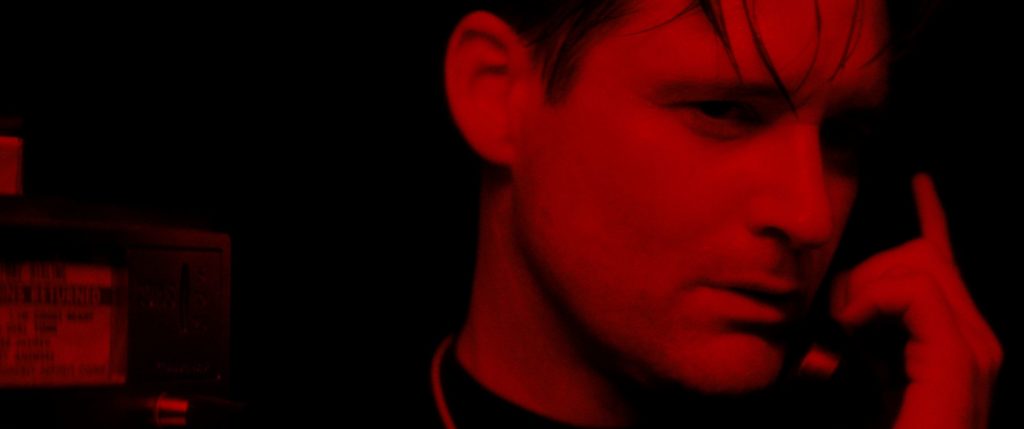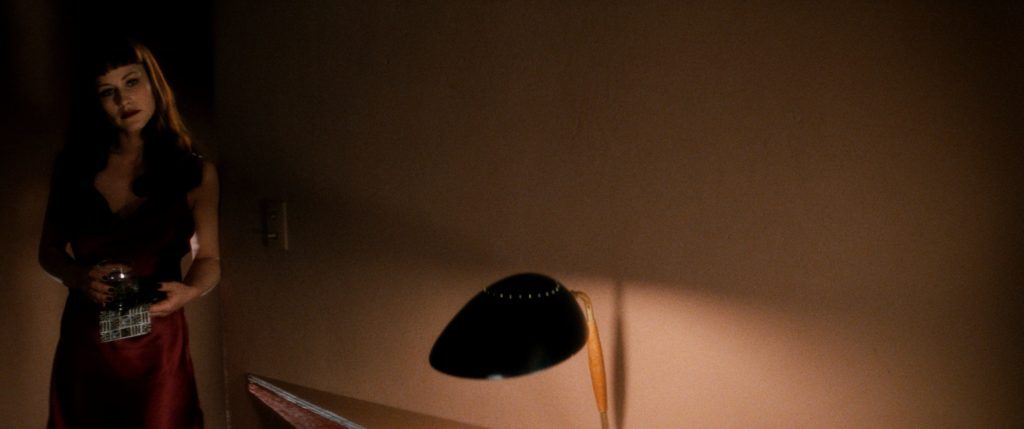
Much like his most famous creation, David Lynch was in a sort of limbo in the mid ‘90s. Though now rightly considered a masterpiece, his 1992 Twin Peaks prequel Fire Walk With Me was largely greeted as a misfire, booed at Cannes and rejected by fans seeking closure to the prematurely canceled series. The sitcom On the Air, Lynch’s follow-up network TV collaboration with Mark Frost, was canned even more quickly, with only four of its six episodes making it to air (it’s maybe the director’s funniest work, but you’ll have to secure a bootleg DVD in order to see it). Lynch would close out the decade with something of a reset: 1999’s anomalous The Straight Story, a mellow, true-life story about an old man and his tractor, which was improbably rated G and, even more improbably, distributed by Disney (it’s the only David Lynch film currently available to stream on Disney+, unless you count the “Twin Beaks” episode of Darkwing Duck).
In the years in between, Lynch only turned out a single film: 1997’s Lost Highway, which premieres in a brand-new Janus Films 4k restoration this week at the Brattle. At the time of its release, it too was greeted with bewilderment (even for a Lynch project), and even some of the director’s most strident fans wondered if he was struggling to find a way forward. As it almost always does, however, time has borne Lynch’s instincts out: not only does Lost Highway stand among his best work, it marks an undeniable turning point in his career.
Lost Highway stars Bill Pullman as Fred Madison, an avant-garde saxophonist with a problem: he keeps finding VHS tapes on his front doorstep, at first containing footage of the outside of his house, and eventually of himself in bed with his raven-haired wife Renee (Patricia Arquette). Plagued with nightmares, Madison’s mental state worsens following a chance encounter with a mysterious stranger (Robert Blake– more on him later). Things take an even more sinister turn when the final tape implicates Madison in a crime he has no memory of committing, placing him on death row… where, in his cell, he suddenly transmogrifies into a young auto mechanic named Pete Dayton (Balthazar Getty). Released from prison– Pete Dayton is innocent, after all– Fred/Pete finds himself embroiled with a tough-talking mob boss (Robert Loggia) and his moll (Arquette again, now a blonde). On the periphery, however, is still that Mystery Man and his camcorder, and our hero begins to wonder what– if anything– is real.

Look, I tried my best to summarize the plot of Lost Highway in the above paragraph, but like much of Lynch’s work it defies synopsis. More than any of his features up to that point (save, of course, Eraserhead), Lost Highway has the feel of an unsettling dream, complete with elliptical story elements that never quite click together and characters who come and go at a moment’s notice. Lynch, when asked about the story, has referred to it as a “psychogenic fugue” rather than a “plot.” Critics were understandably baffled, which the distributors used to their advantage in a famous newspaper ad that proudly toted Siskel and Ebert’s “Two Thumbs Down” verdict.
But even though its narrative doubles back in on itself, Lost Highway presented Lynch with a roadmap forward. As confounding as it seemed at the time, Highway’s mid-film perspective shift (seemingly modeled after Vertigo, which, as I’ve mentioned in this space, had already served as inspiration for Lynch) would become one of his signature moves. He would return to it five years later in the emotionally wrenching second half of Mulholland Drive, and expand on it even further in his experimental nightmare Inland Empire. And, of course, much of Twin Peaks: The Return finds itself in similar territory, from the fractured psyche of Dale Cooper and his various doppelgangers to the timeline-shattering events of the final episodes. When Dale and Diane become Richard and Linda, they may very well be on the same desolate stretch of freeway as Fred and Renee and Pete and Alice.
All this being said, Lost Highway also stands alone in Lynch’s filmography in many ways. More than perhaps any of his other work, Lost Highway feels like a product of its time. Though it features a score by longtime Lynch collaborator Angelo Badalamenti, the soundtrack was produced by Trent Reznor (of “the” Nine Inch Nails), and features a then-startlingly-modern array of alt-rock giants, including Marilyn Manson (who briefly appears as a porn star), Smashing Pumpkins, and Rammstein.* And Lynch has said that the story was inspired in part by watching the ever-shifting narrative of the OJ Simpson trial. It probably won’t get programmed alongside such “90s Kids Remember” hits like, say, Encino Man, but it does capture the queasiness of the era in a way that only Lynch could.

Speaking of alleged wife-murderers, I would be remiss if I didn’t take a moment to talk about Robert Blake. Though his screen time probably only amounts to a few minutes, Blake’s performance as the Mystery Man ranks among the most terrifying creations in Lynch’s filmography, right up there with Killer BOB and Frank Booth. Slathered in clown-white makeup and bearing a Cheshire grin, Blake plays his character like a manifestation of pure, gleeful evil. There is a scene in which Fred meets the Mystery Man at a party (which I will not spoil for the uninitiated, but which anyone who has seen the film will immediately recognize) which I have, without exaggeration, thought about at least once a month for the past twenty-plus years. Though Lynch obviously had no way of knowing this, Blake’s performance would become all the more haunting five years later, when the actor was arrested for the murder of his wife, Bonnie Lee Bakley. Blake was acquitted in 2005, but his infamy can’t help but color his performance– his last to date.
Though David Lynch has attracted his share of skeptics over the years, there is by this point little disagreement that he is one of the living masters of American cinema; that his films sometimes take years or decades to be fully appreciated simply speaks to their complexity and timeless appeal. Freed from its original context of the Sundance-addled ‘90s, we can now appreciate Lost Highway for what it is: an eerie, eye-popping meditation on guilt, subjectivity, and the dangers of tailgating. God willing, most of us will never be imprisoned for murder or stalked by a possibly supernatural home video enthusiast, but we can likely all relate to remembering certain events contrary to available evidence. Do what you can to catch it on the big screen– and maybe dust off your VCR in case there’s a package waiting for you when you get home.
* – Rammstein came to Lynch’s attention when they personally mailed him a copy of their album; years later, Lynch’s Gordon Cole could be heard whistling one of their songs in Twin Peaks: The Return.
Lost Highway
1997
dir. David Lynch
134 min.
New 4k restoration!
Screens Friday, 7/1 through Thursday, 7/7 @ Brattle Theatre

